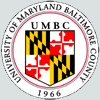| ||||||||||||||||||||
Tips:  Range on the Protein: Protein ID Protein Position Domain Position: 
|
|---|
Weblogos are Copyright (c) 2002 Regents of the University of California
| DMDM_info@umbc.edu | 1000 Hilltop Circle, Baltimore, MD 21250 | Department of Biological Sciences | Phone: 410-455-2258 |




 DNA Polymerase iota. Pol iota, also called Rad30B, is a translesion synthesis (TLS) polymerase. Translesion synthesis is a process that allows the bypass of a variety of DNA lesions. TLS polymerases lack proofreading activity and have low fidelity and low processivity. They use damaged DNA as templates and insert nucleotides opposite the lesions. Pol iota is thought to be one of the least efficient polymerases, particularly when opposite pyrimidines; it can incorporate the correct nucleotide opposite a purine much more efficiently than opposite a pyrimidine, and prefers to insert guanosine instead of adenosine opposite thymidine. Pol iota is believed to use Hoogsteen rather than Watson-Crick base pairing, which may explain the varying efficiency for different template nucleotides.
DNA Polymerase iota. Pol iota, also called Rad30B, is a translesion synthesis (TLS) polymerase. Translesion synthesis is a process that allows the bypass of a variety of DNA lesions. TLS polymerases lack proofreading activity and have low fidelity and low processivity. They use damaged DNA as templates and insert nucleotides opposite the lesions. Pol iota is thought to be one of the least efficient polymerases, particularly when opposite pyrimidines; it can incorporate the correct nucleotide opposite a purine much more efficiently than opposite a pyrimidine, and prefers to insert guanosine instead of adenosine opposite thymidine. Pol iota is believed to use Hoogsteen rather than Watson-Crick base pairing, which may explain the varying efficiency for different template nucleotides. No pairwise interactions are available for this conserved domain.
No pairwise interactions are available for this conserved domain.




















